Staff

Royal Society University Research Fellow
University of Edinburgh
Tim was born in the United States, and did his
undergraduate studies at the University of
Pittsburgh. He obtained his PhD from the University of
Oxford (2013), and subsequently held junior research
fellowships at the University of Cambridge (2013-16) and
Imperial College London (2016-19) before moving to
Edinburgh with a Royal Society University Research
Fellowship in 2019. Tim's research deals with finding
new mathematical formulations of quantum field
theories. His interests include: perturbative structures
of gauge and gravitational theories, novel presentations
of physical observables, aspects of twistor theory and
string theory, and asymptotic properties of general
relativity.

Associate Professor
Heriot-Watt University
Murad grew up in Alexandria, Egypt. He studied
mathematics and physics in Karlsruhe, the ENS in Paris as
well as at the LMU in Munich where he obtained his PhD
(2009) in mathematical physics. He was then a postdoc at
the Hausdorff Center for Mathematics in Bonn, the High
Energy Theory group at Harvard and in the Mathematics
Department of Harvard before moving back to Germany to
lead an Emmy Noether research group at the department of
mathematics of the University of Hamburg. He joined
Heriot-Watt in 2024 as an associate professor for
mathematical physics. Murad’s work is on quantum
geometry, an area where mathematical structures are
developed which are adapted to problems of quantization
of physical systems and their dualities using methods
from complex algebraic geometry, representation theory
and number theory.
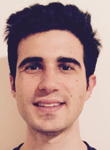
Lecturer
University of Edinburgh
Theo studied mathematics as an undergraduate and masters
student at the University of Cambridge and then obtained
his PhD in mathematics from the University of
Warwick. Following postdoc positions at the University
of Bristol and the University of Oxford he joined
University of Edinburgh as a lecturer in 2020. His
research focuses on random matrix theory and stochastic
interacting particle systems which have some underlying
integrability. He is particularly interested in
connections of the above to special functions and
combinatorics.
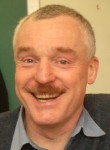
Professor of Integrable Systems
University of Edinburgh
Harry was born in Edinburgh and grew up in Australia. He was an
undergraduate at Sydney University and obtained his PhD at the
University of Cambridge. He subsequently had a Fellowship at Corpus
Christi College (Cambridge) and postdoctoral positions at the
University of North Carolina, Chapel Hill, and Durham University
before coming to Edinburgh in 1990. He has worked in many areas of
mathematical physics over the years with complete integrability
(both in the classical and quantum regimes) a recurring theme. He
has applied his research techniques to a wide range of problems
beyond the horizons of mathematical physics (to problems such as
network design and card shuffling).

Andrea Cristofoli
Postdoctoral Researcher
University of Edinburgh
Andrea was born and raised in Verona, Italy. He did his
undergraduate and master studies at the University of
Padova. After a short research period at SISSA, he
joined the Niels Bohr Institute in Copenhagen with a
Marie Curie Fellowship, where he obtained his PhD in
2021. Currently, he is a research associate in
mathematical physics at the University of Edinburgh,
with a position funded through the Leverhulme Trust
Research Project Grant “Twistors and quantum field
theory in strong backgrounds”. His research interests
include gravitational wave physics, twistor theory,
quantum field theory on strong backgrounds. the two-body
problem in general relativity and scattering amplitudes.

Assistant Professor
Heriot-Watt University
Richard grew up in Glasgow, before completing his
undergraduate studies at Cambridge University and his
PhD at Oxford University. He started at Heriot-Watt in
2019, following postdoc positions at Leiden University
(2012-15), Harvard University (2015-18) and Cambridge
University (2018-19). His research mainly focuses on the
dynamics of quantum systems with strong interactions,
their implications for fundamental physics, and
applications to strongly correlated states of matter.

Reader in Mathematics
University of Edinburgh
Tudor grew up mainly in the
American Midwest. He received his Ph.D. from Caltech
(2010), and spent his postdoctoral years at Trinity
College, Cambridge, the Institute for Advanced Study, and
the Perimeter Institute, before becoming a founding member
of the UC Davis Center for Quantum Mathematics and Physics
in 2015. He joined the Hodge Institute at Edinburgh in
2020. Tudor's research lies at the interface of
theoretical physics and pure mathematics, inspired by the
dual questions: What algebraic and geometric structures
govern the behavior of elementary quantum particles and
fields? Conversely, how can physics be used to formulate
new predictions and results in algebra, geometry,
topology, and other branches of mathematics?

Associate Professor in Mathematical Physics
Heriot-Watt University
Anastasia was born and grew up in
Greece. She studied Physics as an undergraduate in
University of Athens. She got her PhD in Theoretical
Physics from University of Miami. She then spent three
years as a postdoc in UK (Durham and York), three years in
LAPTH, France and two years in University of Bologna,
Italy. She then returned to Greece in U. Patras as an
assistant Professor. She is now a reader in Heriot-Watt
University since 2013. Her research interests are:
mathematical physics, statistical physics; in particular
quantum and classical integrable models, and quantum
groups.
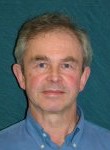
Professor of Mathematics
Heriot-Watt University
Chris has been at Heriot-Watt for
over 30 years. He is interested in solitons and
nonlinear wave equations. His work covers pulses in
continuum systems, and on lattices, which approximate
soliton behaviour, both in classical and quantum
systems; also systems with exact solutions that can be
studied using techniques from algebraic geometry and
computer algebra.
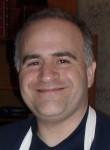
Professor of Geometric Physics
University of Edinburgh
José was born in Havana, Cuba and
raised in Madrid, Spain. He obtained a BS in Physics
from MIT in 1984, with a thesis supervised by Alan Guth.
He obtained a PhD in Theoretical Physics from SUNY Stony
Brook in 1989 under the supervision of Martin Roček. He
held postdoctoral positions in Universiteit Leuven
(1989-1991), Universität Bonn (1991-1993) and Queen Mary
and Westfield College (1993-1998). After one year as a
lecturer in Queen Mary, he came to Edinburgh in 1999.
His research interests lie in the mathematical aspects
of supersymmetry, gauge theories, (super)gravity and
string theory. He has also worked on conformal field
theory and integrable systems and has even dabbled in
knot theory to pass the time.

Assistant Professor
Heriot-Watt University
James grew up in Leeds and studied a masters in theoretical physics at the University of Leeds and the University of California, Berkeley. He then went on to complete a PhD in mathematics at the University of Nottingham. During this time, he held a visiting research position at Jagiellonian University in Krakow. After his PhD he went on to hold positions at the University of Strathclyde, the University of Glasgow, and the University of Nottingham before settling into a teaching position at Heriot-Watt University. His research interests centre around the area of non-commutative geometry, quantum gravity and algebraic quantum field theory.

Jelle Hartong
Royal Society University Research Fellow
University of Edinburgh
Jelle obtained his PhD in theoretical physics within the
subject of string theory from the University of
Groningen in The Netherlands. He then worked as a
postdoctoral researcher at the Albert Einstein Center in
Bern, the Niels Bohr Institute in Copenhagen, Brussels
University (International Solvay Institutes) and at the
University of Amsterdam. His research concerns
holographic dualities in quantum gravity and string
theory. In particular he is interested in limits of the
AdS/CFT correspondence in which the duality becomes more
tractable. In relation to this, he has worked on the
foundations and applications of non-Lorentzian
geometries, such as Newton-Cartan geometry, that arise
in limits of string theory and general
relativity. Finally, he also works on the fluid/gravity
correspondence in non-AdS holography and on applications
of non-Lorentzian geometry to fluid dynamics for
non-relativistic fluids.
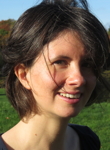
Associate Professor
Heriot-Watt University
Lotte was born in the
Netherlands. She studied mathematics and physics at the
University of Utrecht and obtained her PhD in string
theory in 2009 at the University of Amsterdam. She
subsequently moved to Caltech as a postdoctoral fellow,
and to Oxford as a research fellow. Lotte's research is
driven by the interaction between theoretical physics and
pure mathematics. On the physics side she is interested in
fundamental questions in supersymmetric gauge theory and
string theory. On the mathematics side there are often
deep relations to geometry, topology and algebra.

Professor of Mathematical Physics
Heriot-Watt University
Des Johnston grew up in Belfast and
studied physics as an undergraduate at Trinity College,
Cambridge before getting a PhD in Theoretical physics
from Imperial College, London in 1986. He then spent
three and a half years as a postdoc in LPTHE (now LPT)
Orsay, France (1986-7), Caltech (1987-9) and the Free
University of Berlin (1989-90)- just in time to see the
wall come down. Deciding it was a good idea to get a
proper job, but reluctant to get a haircut and put on a
suit, he came back to Britain to work as a temporary
lecturer at Lancaster University in the school of
physics, before arriving at Heriot-Watt in 1990, where
he has languished ever since apart from a year away in
1993-4 at Orsay again. His research interests are in
statistical mechanics and disordered systems, with
dabblings in simulating discretized models of gravity.

Anatoly Konechny
Associate Professor in Mathematical Physics
Heriot-Watt University
Anatoly did his undergraduate studies in Moscow. He
received diplomas from the Independent University of
Moscow and Moscow Oil and Gas Institute in 1995. He did
his PhD studies in mathematics at the University of
California at Davis under the supervision of Albert
Schwarz. Subsequently he held postdoctoral positions at
Berkeley (1999-2002), Hebrew University in Jerusalem
(2002-2004) and Rutgers University (2004-2006). He
joined the faculty at the Heriot-Watt University in
September 2006. His research interests are in string
theory, noncommutative geometry, two-dimensional
conformal field theory, renormalization group flows in
low-dimensional systems and their applications to string
theory and condensed matter physics.

James Lucietti
Reader in Mathematical Physics
University of Edinburgh
James was born in Leicestershire and was raised there
and northern Italy. He studied at the University of
Cambridge, where he obtained a Bachelor's degree in
Natural Sciences (2000), followed by Part III
Mathematics (2001) and a PhD in string theory at the
Department of Applied Mathematics and Theoretical
Physics (2005). He was then a college lecturer at Oxford
University (2005-2006) and a postdoc at Durham
University (2006-2009). In 2009 he was awarded an EPSRC
career acceleration fellowship with Imperial College
London, where he spent a year, before moving to the
University of Edinburgh as a lecturer in 2010. His
current research interests concern higher dimensional
gravity/General Relativity, usually in the context of
string theory and the gauge/gravity correspondence. He
has a particular interest in black hole solutions.

Praxitelis Ntokos
Postdoctoral Researcher
University of Edinburgh
Praxitelis grew up in Greece and obtained his
undergraduate degree in Physics from the National and
Kapodistrian University of Athens (2011), followed by a
joint master's degree from ETH Zürich and École
Polytechnique Paris (2011-2013) and a PhD in String
Theory at IPhT Saclay, France, under the supervision of
Mariana Graña (2013-2016). He then held postdoctoral
positions at the University of Padova (2016-2018) and
Utah State University (2018-2020) before moving to
Edinburgh as a postdoctoral researcher. His research
interests include flux compactifications with a focus on
generalised geometry, AdS/CFT duality and the
(holographic) study of black holes.

Professor of Mathematical Physics
Heriot-Watt University
Christian grew up in Fulda, Germany and Thessaloniki, Greece.
He obtained a degree in church music, before he went to the
University of Würzburg, where he studied for three years and
received undergraduate degrees in both Mathematics and
Physics. He then moved to Austin, Texas where he worked on a
thesis on supermathematics resulting in his MA. After
completing his PhD on twistor string theory at the University
of Hannover, he held two postdoctoral positions at the Dublin
Institute for Advanced Studies and Trinity College,
Dublin. His research interests include twistor geometry and
integrability, noncommutative geometry and geometric
quantization as well as string and M theory. He came to
Edinburgh in September 2009 as an EPSRC Career Acceleration
Fellow at Heriot-Watt University. He became a Lecturer in 2011.
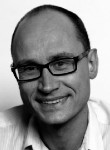
Professor of Matter and Motion
University of Edinburgh
Bernd was born in Germany. After
attending the United World College of the Atlantic he
studied physics and mathematics at the University of
Bonn and obtained his PhD at the University of Cambridge
(DAMTP). He then worked as a post doc in Durham, and
Amsterdam and as an EPSRC Advanced Research Fellow at
the University of Edinburgh before joining Heriot-Watt
University in September 2000. In August 2022, Bernd
moved to the University of Edinburgh as Head of School
of Mathematics. His research interests include
topological solitons (particularly magnetic monopoles,
vortices and skyrmions), quantum groups and quantum
gravity in (2+1) dimensions.

Joan Simón
Reader in Mathematical Physics
University of Edinburgh
Joan was born and raised in
Barcelona, Spain. He obtained a BS in Physics from the
University of Barcelona in 1996 and a PhD in Theoretical
Physics from the same university in 2000 under the
supervision of Joaquim Gomis. He has held postdoctoral
positions in The Weizmann Institute, the University of
Pennsylvania and the University of California in
Berkeley. His research interests lie in the
understanding of the structure of space and time, using
the study of black holes and cosmological singularities
in the framework of string theory, and the possible
observational signatures that this theory may have in
experiments.
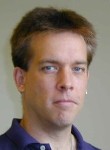
Professor of Mathematical Physics
Heriot-Watt University
Richard was born in Montreal, Canada and completed a
Joint Honours Mathematics & Physics BSc degree at
McGill University in 1990. He did his MSc and PhD
degrees in Theoretical Physics at the University of
British Columbia under the supervision of Gordon
Semenoff. He then did postdoc stints at Oxford
University in 1995 and the Niels Bohr Institute in 1998,
before settling permanently at Heriot-Watt in 2000. His
research centres around the applications of geometrical
and topological methods to problems in quantum field
theory and string theory, focusing in particular on
techniques drawn from K-theory, noncommutative geometry
and algebraic geometry.
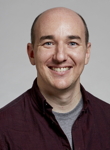
Royal Society University Research Fellow
Heriot-Watt University
Matt was born in the United States
and did his undergraduate studies at the University of
Notre Dame. He obtained his PhD from Johns Hopkins
University (2014) and then held postdoctoral positions at
Boston University (2014-17), CERN (2017-19), and EPFL
(2019-22). He received a Royal Society University Research
Fellowship in 2022 (initially held at Trinity College
Dublin) and joined Heriot-Watt University in Fall
2023. Matt’s research focuses on various nonperturbative
aspects of quantum field theory, including scattering,
thermalization, phase transitions, and confinement, often
from the perspective of the conformal bootstrap and
holography.

Professor in Mathematical Physics
Heriot-Watt University
Robert Weston was born and grew up
here.
He was an undergraduate at Nottingham and a graduate student at
DAMTP in Cambridge. Following postdocs at Durham University and
at the Université de Montreal, he arrived at Heriot-Watt
University in 1998. His research interests are primarily in
integrable quantum systems, both statistical-mechanical models
and quantum field theories.
